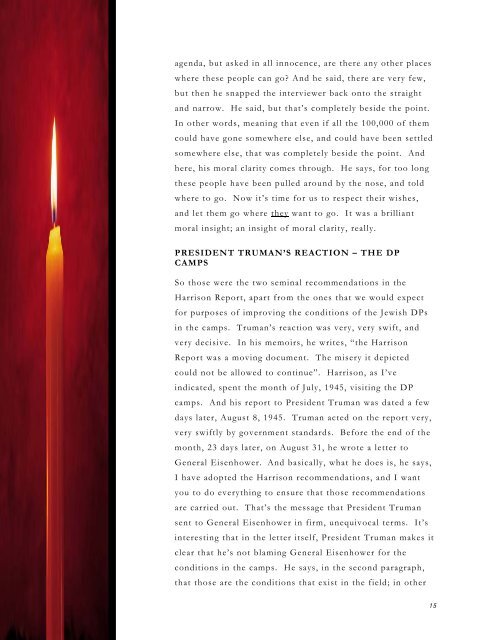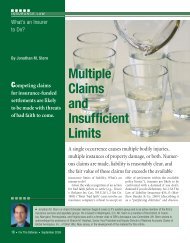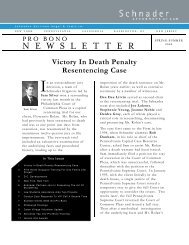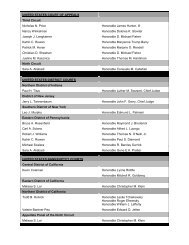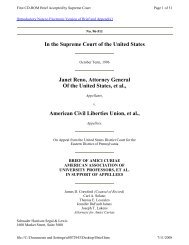the post-holocaust world and president harry s. truman
the post-holocaust world and president harry s. truman
the post-holocaust world and president harry s. truman
Create successful ePaper yourself
Turn your PDF publications into a flip-book with our unique Google optimized e-Paper software.
agenda, but asked in all innocence, are <strong>the</strong>re any o<strong>the</strong>r places<br />
where <strong>the</strong>se people can go And he said, <strong>the</strong>re are very few,<br />
but <strong>the</strong>n he snapped <strong>the</strong> interviewer back onto <strong>the</strong> straight<br />
<strong>and</strong> narrow. He said, but that’s completely beside <strong>the</strong> point.<br />
In o<strong>the</strong>r words, meaning that even if all <strong>the</strong> 100,000 of <strong>the</strong>m<br />
could have gone somewhere else, <strong>and</strong> could have been settled<br />
somewhere else, that was completely beside <strong>the</strong> point. And<br />
here, his moral clarity comes through. He says, for too long<br />
<strong>the</strong>se people have been pulled around by <strong>the</strong> nose, <strong>and</strong> told<br />
where to go. Now it’s time for us to respect <strong>the</strong>ir wishes,<br />
<strong>and</strong> let <strong>the</strong>m go where <strong>the</strong>y want to go. It was a brilliant<br />
moral insight; an insight of moral clarity, really.<br />
PRESIDENT TRUMAN’S REACTION – THE DP<br />
CAMPS<br />
So those were <strong>the</strong> two seminal recommendations in <strong>the</strong><br />
Harrison Report, apart from <strong>the</strong> ones that we would expect<br />
for purposes of improving <strong>the</strong> conditions of <strong>the</strong> Jewish DPs<br />
in <strong>the</strong> camps. Truman’s reaction was very, very swift, <strong>and</strong><br />
very decisive. In his memoirs, he writes, “<strong>the</strong> Harrison<br />
Report was a moving document. The misery it depicted<br />
could not be allowed to continue”. Harrison, as I’ve<br />
indicated, spent <strong>the</strong> month of July, 1945, visiting <strong>the</strong> DP<br />
camps. And his report to President Truman was dated a few<br />
days later, August 8, 1945. Truman acted on <strong>the</strong> report very,<br />
very swiftly by government st<strong>and</strong>ards. Before <strong>the</strong> end of <strong>the</strong><br />
month, 23 days later, on August 31, he wrote a letter to<br />
General Eisenhower. And basically, what he does is, he says,<br />
I have adopted <strong>the</strong> Harrison recommendations, <strong>and</strong> I want<br />
you to do everything to ensure that those recommendations<br />
are carried out. That’s <strong>the</strong> message that President Truman<br />
sent to General Eisenhower in firm, unequivocal terms. It’s<br />
interesting that in <strong>the</strong> letter itself, President Truman makes it<br />
clear that he’s not blaming General Eisenhower for <strong>the</strong><br />
conditions in <strong>the</strong> camps. He says, in <strong>the</strong> second paragraph,<br />
that those are <strong>the</strong> conditions that exist in <strong>the</strong> field; in o<strong>the</strong>r<br />
15


